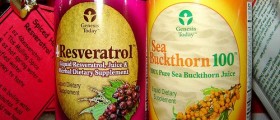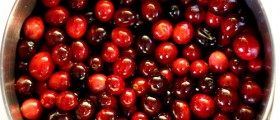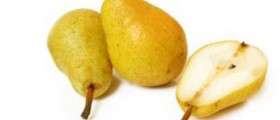
Grapes are small round or oval berries, popular in the United States as well as in many other parts of the world. Grapes can be eaten raw or used for making jam, juice, jelly, vinegar, wine, grape seed extracts, raisins and grape seed oil. Their juicy semi-transparent flesh is full of sweet nectar, covered with a protective smooth skin. Grapes are extremely healthy, nutrient dense and beneficial for humans’ health.
Nutritional facts on grapes
The most beneficial compounds found in grapes are from a category of phytonutrients called polyphenols, especially three types of polyphenols: flavonoids, phenolic acids and resveratrol. These healthy compounds are most concentrated in the skin, stems and seeds. Flavonoids are actually responsible for lively purple color of the grapes. The darker the grapes are, the higher is the concentration of flavonoids. Grapes are excellent sources of manganese and good sources of vitamin B6, thiamin (vitamin B1), potassium and vitamin C. One cup of grapes weighs approximately 92 grams and provides around 62 calories. A portion of this size provides approximately 33% of recommended daily allowance (RDA) for manganese, 5% or RDA for vitamin B6, 5.33% of RDA for thiamin, 5.02% of RDA for potassium and 6.13% of RDA for vitamin C. A large portion of calories in the grapes comes from the sugars.
Health benefits of grapes
Perhaps the most famous health benefit of grapes is known as the French Paradox, the observation that French people suffer a relatively low incidence of coronary heart disease, despite having a diet relatively rich in saturated fats. It is thought that French people actually benefit from the protective features of regularly consuming red wine.
Flavonoids and resveratrol are able to reduce platelet clumping and sufficient blood clotting, as well as to protect the body from oxidative damage caused by free radicals. Grape juice actually protects LDL cholesterol from oxidation, a phenomenon that can turn LDL into an artery-damaging molecule. Moreover, resveratrol helps keep the heart muscle flexible and healthy by inhibiting angiotensin II, a hormone that is secreted in response to high blood pressure and heart failure.
Pterostilbene, another antioxidant in the grapes, is already known to fight cancer and may also help lower the levels of cholesterol. Pterostilbene is also known for its cancer-fighting and cholesterol-lowering properties.
Grape juice is traditionally used in the treatment of constipation, gout, rheumatism, skin and liver disorders. This true alkaline fruit can help to decrease the acidity of the uric acid aiding the elimination of the acid from the system, thus benefiting the kidneys greatly.

















Your thoughts on this
Loading...